Has the ‘honeymoon’ ended for Al-Sisi and Saudi Arabia?
by Khalil Al-Anani*
There is a hidden tension in the relationship between Cairo and Riyadh. It began some time ago, when the political leadership in Saudi Arabia changed with the death of King Abdullah and decided to reconsider a number of regional issues, beginning with how to counter Iranian influence in the Middle East.
It seems that Cairo was surprised by the changes within the ruling House of Saud; the Egyptian leadership thought, mistakenly as it happens, that the change was merely a formality and would not have any repercussions on the relationship between the two countries. This reflects both naivety and disregard, especially after Abdel Fattah Al-Sisi pushed aside his liberal and secular coup supporters in the development of a more autocratic style of government.
It is true that there hasn’t been a radical transformation in the relationship between the two countries yet, and Riyadh is still an influential supporter of Al-Sisi’s government, but the recklessness of the latter and his failure to read the internal shifts in Saudi Arabia may hasten such a transformation.
Also Read: Be Careful of the Trap of Deploying Peacekeeping Forces to Gaza
We saw some indications of this at the recent Arab summit in Sharm Al-Sheikh which revealed the vast difference between the respective visions of Riyadh and Cairo regarding regional issues. This was also confirmed by the follies of some pro-coup journalists who “deviated from the script” and offended the kingdom, thus igniting a social media campaign between those affiliated with each side.
The differences between Riyadh and Cairo are manifested in various ways, the first of which is related to their national priorities. Riyadh believes that the current priority is stopping the spread of Iran’s influence in the region at any price. This is clearly the basis for “Operation Decisive Storm”, which Cairo seemed to know little about if the reaction of the Egyptian foreign ministry is anything to go by; Al-Sisi’s government appears to have been the last to know about the attack. On the opening day of “Decisive Storm”, 26 March, a spokesperson for the ministry said that Egypt will not be involved in any military operation in Yemen, only to stress the government’s political and military support a few hours later.
For Al-Sisi, on the other hand, the priority is to eliminate the influence and spread of the Islamists, as he regards them as a threat to his government’s existence. Riyadh may share the same goal, but it does not consider it to be a priority at the moment. On the contrary, there are indications that for Saudi Arabia the true danger is Iranian, not Islamist. This does not mean that it will make a truce with or support the Islamists, but that it will work on containing them as a secondary threat.
There are also deep differences between Riyadh and Cairo with regards to the Syrian and Libyan issues. On Syria, Al-Sisi believes that Bashar Al-Assad must be a part of the solution, which must be political, not military. This contradicts Saudi Arabia’s vision, within which the Syrian president has no place in the country’s future and a military route is the best way to resolve the crisis. It seems that Al-Sisi formed his position upon advice from his Russian friend Vladimir Putin, who appears to be using Al-Sisi to influence Riyadh’s stance on the issue.
Also Read: The Forty-Four-Days of Glory: Azerbaijan’s Struggle for Justice and Peace
As for Libya, Al-Sisi believes that the solution must also be military, which is perhaps what he was hoping to achieve through his proposal for the establishment of an Arab rapid response force. This was approved recently at the Arab summit. According to Riyadh, a political solution is the best and most suitable for the situation in the North African country.
There seems to be mutual distrust between the two sides, which was revealed by the atmosphere surrounding “Decisive Storm”. Despite the fact that Al-Sisi has tried to highlight his support for Saudi Arabia, his relationship with Yemen’s Houthis and deposed President Ali Abdullah Saleh raises many doubts about his credibility and integrity.
The Egyptian president has even sought to strengthen his relationship with the Houthis, their leaders have claimed, both before and after the Saudi-led coalition started its offensive; Saleh, meanwhile, proposed that Egypt could host the dialogue between Yemeni factions, as it is a “neutral” country.
“The Egyptian army is only for Egypt,” said Al-Sisi, which has further increased the distrust in him, as he then backed down and announced that he would support his allies in the coalition. Lately, there have been repeated comments by Saudi journalists calling for the link between Riyadh and Cairo to be broken, due to the lack of confidence in Al-Sisi; some have called for him to be replaced by an alliance with Turkey and Pakistan.
Also Read: Palestine Solidarity Month: A Collective Movement for Al-Aqsa and Palestine’s Freedom
Al-Sisi looks a bit confused and baffled at Saudi Arabia’s “boldness” both on an Arab and regional level. He believed wrongly that his allies in the Gulf, especially Saudi Arabia, are still in dire need of him to protect them from regional threats. He has also been vain enough to believe that he was an irreplaceable ally. He is still held prisoner by the myth of Egyptian superiority with regards to the Gulf’s military potential and capabilities.
This was reflected in his office manager’s statements that the Gulf States should be dealt with on the principle of “payment for protection”, which was the case during the Second Gulf War. Neither Al-Sisi nor his office manager appear to understand that the Gulf’s military capabilities and armies have improved greatly over the past two decades, superseding those of the Egyptians. As such, Gulf security is in no real need of Al-Sisi and his army, especially if there is any truth in the talk about new links with Turkey and Pakistan.
Finally, do we detect a sense of “muffled” anger and frustration from General Al-Sisi because of Saudi Arabia’s leading role in the region? It has been apparent since the start of “Decisive Storm” and was reflected in statements made by his media mouthpieces, which have been driven crazy by Riyadh’s bold moves.
It is perhaps the first time in history that the Saudi capital, not Cairo, is the regional heavyweight; many Saudi commentators are now talking about the country’s influence in the Middle East and its leadership of the Sunni axis. This new situation not only detracts from Al-Sisi’s strategic importance to his allies, but also stokes the traditional competition between Riyadh and Cairo.
Also Read: Hassan al-Turabi: A Controversial Thinker from Sudan
This could end in one of two ways: the temporary Saudi-Egypt “honeymoon” will be over, or Al-Sisi will send his ground forces to Yemen in order to repair his relationship with Riyadh. The latter, though, would probably open up even more problems for him at home. (T/P3/R01)
Mi’raj Islamic News Agency (MINA)
 Dr. Khalil al-Anani is a leading academic expert on Islamist movements, Egyptian politics, and democratization in the Middle East.
Dr. Khalil al-Anani is a leading academic expert on Islamist movements, Egyptian politics, and democratization in the Middle East.
Translated from Al-Araby Al-Jadid, 7 April, 2015.
Also Read: Who Exactly is the RSF Group Shaking Sudan?
Source: https://www.middleeastmonitor.com/articles/middle-east/17925-has-the-honeymoon-ended-for-al-sisi-and-saudi-arabia





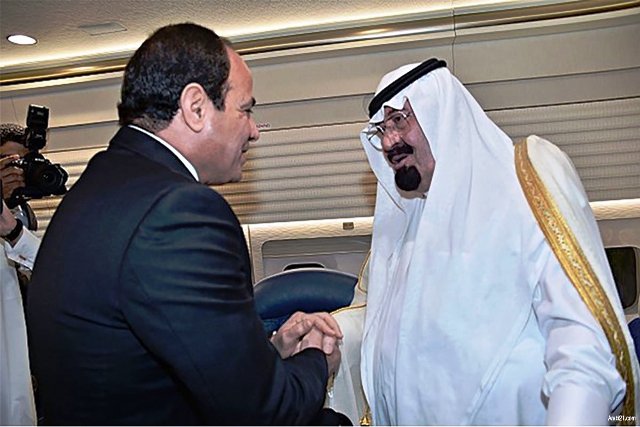

![Abdel Fattah Al-Sisi meeting late King Abdullah of Saudi Arabia [MEMO File photo]](http://mirajnews.com/wp-content/uploads/2015/04/Abdel-Fatah-Al-Sisi-meeting-Abdullah-bin-Abdulaziz-Al-Saud-300x200.jpg)







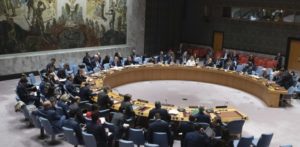


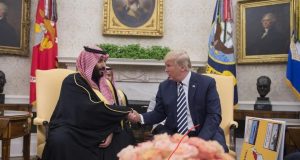
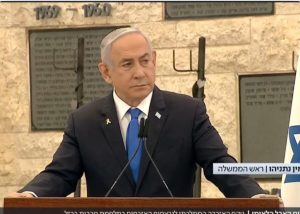






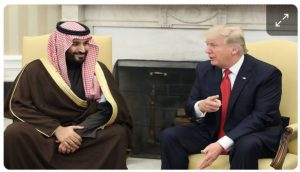
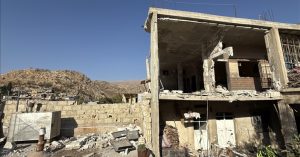






 Mina Indonesia
Mina Indonesia Mina Arabic
Mina Arabic